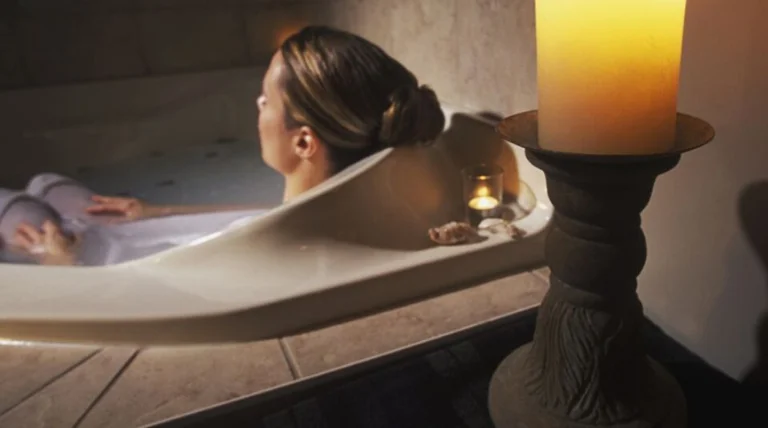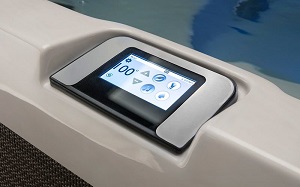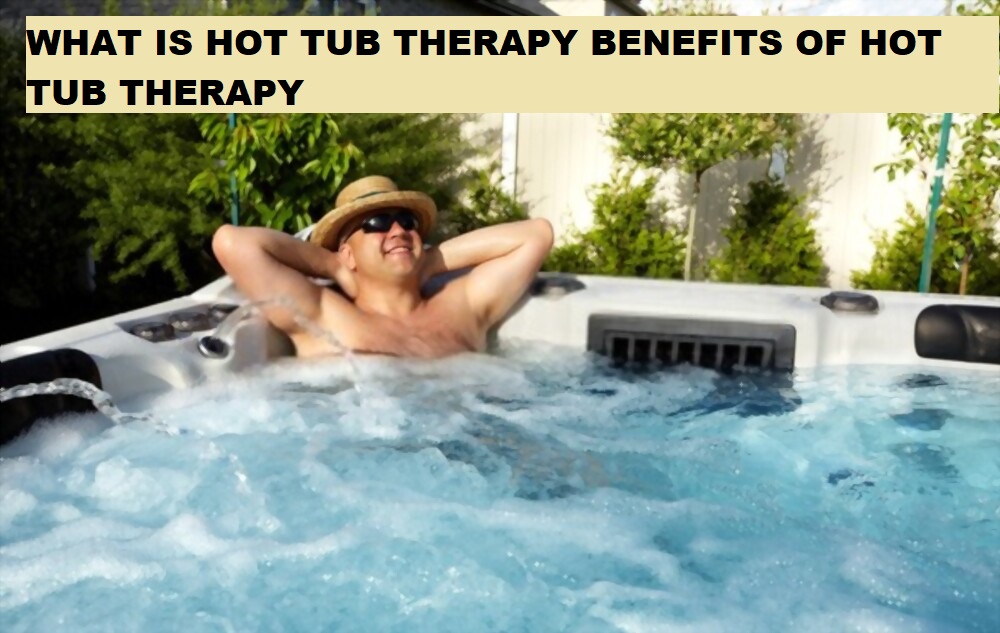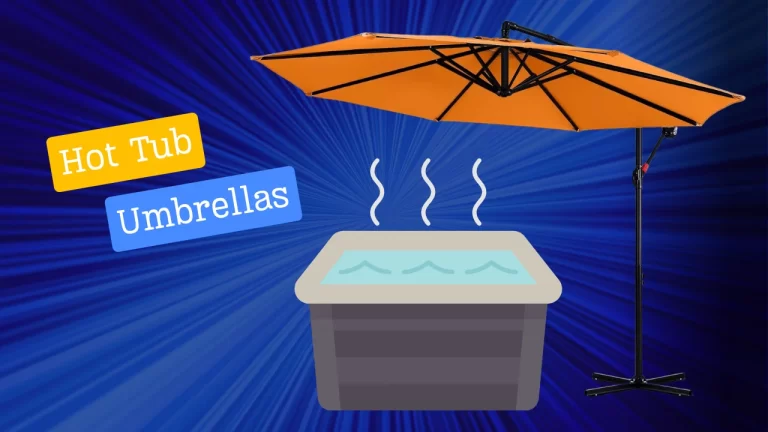Benefits Of Hot Tub Therapy: What Is Hot Tub Therapy?
If you’ve been wondering whether hot tub therapy is worth the hype, you’re not alone. Many people are thinking about the potential benefits of soaking in warm water, especially when it comes to easing muscle soreness, improving mental well-being, or even enhancing skin health.
Have you heard friends rave about their post-workout jacuzzi sessions or seen claims about the spiritual and stress-relieving aspects of hot tub therapy?
But, like anything that sounds too good to be true, there are risks and drawbacks to consider. You might be concerned about the health risks of sitting in water for too long or unsure if a hot tub is the right choice for your home. Plus, how does it really compare to other heat therapies, like saunas?
Physical and Mental Benefits of Hot Tub Therapy
1. Stress Relief
In today’s fast-paced world, stress seems almost inevitable. But the solution could be as simple as stepping into a warm hot tub. The combination of soothing water, gentle jets, and warmth can create an oasis of calm, allowing you to relax and unwind.
Research shows that hydrotherapy not only helps with physical relaxation but also provides emotional relief by lowering cortisol levels, which are responsible for stress. Whether you’re soaking alone after a tough day or spending quality time with loved ones, the therapeutic properties of a hot tub can offer the mental escape you need.
2. Muscle Relaxation & Recovery
After a long workout, muscle soreness can creep in, slowing down your recovery and leaving you feeling stiff. That’s where hot tub therapy shines. The buoyancy of the water reduces the weight on your joints, allowing your muscles to relax without the strain of gravity.
The jets provide a gentle massage, improving circulation and helping to flush out lactic acid, a byproduct of exercise that contributes to muscle soreness. Studies show that soaking in hot water for just 20 minutes can significantly ease muscle tension and promote faster recovery.
3. Improved Sleep
Struggling to get a good night’s sleep? You’re not alone. Insomnia affects a significant percentage of adults, but a regular dip in a hot tub could be just the trick to help you drift off into dreamland.
Immersing yourself in warm water raises your body temperature, and as you cool down afterward, this natural drop signals to your brain that it’s time to sleep.
One study even found that those who soaked in a hot tub before bedtime experienced more restful, deeper sleep. If sleep has become elusive, making hot tub therapy part of your evening routine might just help you snooze more soundly.
4. Pain Relief
Living with chronic pain can make even the simplest tasks feel monumental. Hot tub therapy, however, offers a natural way to manage this discomfort. Hydrotherapy has been shown to reduce pain by improving blood flow, which in turn helps to loosen stiff joints and reduce inflammation.
Those with arthritis, fibromyalgia, or lower back pain often find significant relief through regular hot tub use. By relieving the pressure on sore joints and muscles, a soak in the hot tub can help make daily pain more manageable.
5. Better Circulation & Cardiovascular Health
Your heart works hard every day, and a soak in the hot tub could help it work even better. When you sit in warm water, your blood vessels dilate, improving circulation and reducing blood pressure.
This increased blood flow ensures that your body receives more oxygen and essential nutrients, which are vital for maintaining a healthy cardiovascular system.
Some research even suggests that regular hot tub use may mimic the benefits of light exercise by improving heart function and circulation, making it a great option for those with limited mobility.
| Benefit | How Hot Tub Therapy Helps |
|---|---|
| Stress Relief | Lowers cortisol levels and promotes mental calm |
| Muscle Relaxation | Eases muscle tension and aids post-exercise recovery |
| Improved Sleep | Regulates body temperature for better sleep quality |
| Pain Relief | Relieves chronic pain, arthritis, and joint stiffness |
| Better Circulation | Improves blood flow and lowers blood pressure |
6. Weight Loss & Calorie Burn
It might sound too good to be true, but hot tubs can help with weight loss. A 2016 study revealed that soaking in a hot tub for an hour burns as many calories as a 30-minute walk.
The increase in heart rate from being immersed in warm water stimulates metabolism, similar to light cardio exercise.
While soaking in a spa won’t replace a solid workout routine, it’s certainly a relaxing way to burn some extra calories, especially for those who find traditional exercise difficult due to joint or mobility issues.
Check out Hot Tub Therapy for Knee Replacement Patients.
Benefits of Hot Tub Therapy for Skin and Overall Health
Hot Tub Benefits for Skin
A soak in a hot tub is more than an indulgence—it’s skincare in disguise. Warm water opens your pores, flushing out impurities and leaving your skin clearer, and healthier. With increased circulation, your skin receives the oxygen it craves, encouraging a natural glow.
For those wanting to soften fine lines, technologies like MicroSilk add an extra touch by boosting collagen production. Whether it’s acne, dryness, or simply dullness, a dip in the tub can transform your skin’s health.
Detoxification and Boosted Immunity
Hot water doesn’t just relax you—it cleanses. By raising your core temperature, hot tubs encourage your body to sweat out toxins. It’s like a gentle detox every time you soak, with increased circulation speeding up waste removal from tissues. Think of it as hitting a reset button for your body, helping your immune system stay strong.
Mental Health Benefits
There’s something magical about water that stills the mind. Soaking in a hot tub can melt away anxiety, leaving you calmer and more centered. Studies show hydrotherapy can elevate your mood and lower stress, but it’s more than that. It’s a moment to breathe, to let go, and to feel grounded in a world that’s constantly moving too fast.
Check out for hot tub health benefits.
Spiritual Benefits of Hot Tub Therapy
Hot water connects you to something deeper. It invites mindfulness, urging you to be present. In those quiet moments, the bubbling water becomes a kind of meditation. Whether you seek reflection, clarity, or just a pause from the world, hot tub therapy offers a gentle space for spiritual renewal.
Hot Tub Therapy for Specific Conditions
Benefits of Using a Hot Tub in the Morning
Starting your day with a soak in the hot tub can be a game-changer. The warm water loosens stiff muscles, reduces joint pain, and energizes you for the day ahead. Morning soaks improve circulation, waking up your body gently, and leaving you refreshed and ready to tackle whatever comes your way.
Hot Tub After Workout: Recovery & Performance
After a tough workout, your muscles crave relief. A soak in the hot tub post-exercise helps reduce inflammation and speed up recovery. The warm water soothes sore muscles, while the jets stimulate blood flow, helping remove lactic acid buildup. It’s the perfect way to relax your body and get back to peak performance quickly.
Managing Diabetes and Heart Disease
Also offer unexpected benefits for managing diabetes and heart disease. By improving circulation and reducing blood pressure, soaking in a hot tub can help regulate insulin sensitivity and heart function. While it’s not a replacement for medication or exercise, it’s a helpful tool to add to your health routine.
Relief for Fibromyalgia and Chronic Pain
For those living with fibromyalgia or chronic pain, hot tubs provide a welcome relief. The buoyancy of the water supports your body, easing pressure on painful joints and muscles. Studies show that regular hot tub use can reduce pain, improve sleep, and enhance mobility—making it a gentle but effective way to manage discomfort.
Hot Tub Benefits vs. Sauna for Muscle Recovery
When it comes to muscle recovery, both hot tubs and saunas offer distinct benefits. Hot tubs excel in soothing sore muscles with targeted jets that massage and relax tension points. The water’s buoyancy reduces pressure on joints, which is particularly helpful after intense physical activity.
Saunas, on the other hand, use dry heat to penetrate deep into muscle tissue, promoting blood flow and speeding up recovery. While saunas offer a more intense heat experience, hot tubs provide a gentler, more focused recovery for aching muscles.
Jacuzzi and Sauna for Skin and Detoxification
Both can work wonders for your skin, but they do so in different ways. Hot tubs open pores through warm water immersion, allowing impurities to escape while improving hydration and circulation. The water’s natural buoyancy also helps with lymphatic drainage, aiding detoxification.
Saunas, with their intense dry heat, make you sweat more profusely, flushing out toxins more rapidly. While saunas are excellent for deep detoxification, hot tubs offer the added benefit of skin hydration and improved elasticity, making it ideal for those looking to boost skin health gently.
Spiritual and Mental Benefits: Hot Tub vs. Sauna
Both can provide mental and spiritual relief, but the experience differs. In a hot tub, the gently bubbling water, combined with heat, creates a relaxing and meditative environment that fosters calm and reflection. It’s a great place to unwind, connect with nature, or even share meaningful moments with loved ones.
Saunas, with their intense heat and silence, offer a more solitary experience, ideal for introspection and clearing the mind. If you’re looking for a peaceful, shared experience, the hot tub might be your choice. If deep, personal meditation is your goal, a sauna may provide the space you need.
| Aspect | Hot Tub | Sauna |
|---|---|---|
| Muscle Recovery | Gentle massage from jets; reduces joint pressure | Intense dry heat penetrates deep into muscles; boosts circulation |
| Skin Health | Hydrates skin; opens pores for better cleansing | Promotes deep sweating to remove toxins rapidly |
| Detoxification | Helps with lymphatic drainage; mild detox | Enhances detox through intense sweating |
| Mental Benefits | Relaxing, meditative experience; ideal for social relaxation | More intense heat; promotes deep personal reflection |
| Spiritual Benefits | Soothing, shared experience fostering connection | Solitary, introspective environment |
Additional Benefits
Beyond the well-documented physical and mental benefits, hot tub therapy can offer additional advantages:
- Improved Cardiovascular Health: The increased heart rate experienced during a hot tub session can provide a cardiovascular workout, enhancing heart health and conditioning the cardiovascular system.
- Boosted Immune System: Hot tub therapy’s stress reduction and improved circulation can fortify the immune system, making the body more resilient to illnesses.
- Weight Management: Regular hot tub use, in conjunction with a healthy lifestyle, can support weight management by promoting relaxation, which reduces stress-related overeating.
- Enhanced Social Interaction: Hot tubs often serve as a social gathering point, promoting bonding and interaction among family and friends. This fosters a sense of community and belonging, essential for mental well-being.
Examples of Hot Tub Therapy Success Stories
- Arthritis Pain Management
Sarah, a middle-aged woman battling arthritis, discovered hot tub therapy as a powerful ally in managing her condition. The warm water and buoyancy significantly reduced her joint pain and stiffness, improving her range of motion. - Stress Reduction and Better Sleep
John, a busy professional overwhelmed by chronic stress, found solace in his backyard hot tub. The soothing, bubbling water helped him unwind, reducing anxiety and improving sleep quality. With restful nights came increased energy and improved overall health. - Social Interaction and Community Building
The Rodriguez family, owners of a backyard hot tub, noticed it became the heart of family gatherings. The hot tub created a space for relaxation and connection, strengthening bonds with friends and loved ones. An essential part of their social life, their hot tub turned casual evenings into meaningful moments.
Pulling out all the stops when it came to relaxation and recovery.

Disadvantages of hot tubs
- Health risks
- Hot tubs can harbor bacteria, leading to skin, ear, and respiratory infections.
- The heat of a hot tub can cause dehydration, dizziness, and fainting, mainly if used for extended periods.
- Hot tub use can increase blood pressure, which can be dangerous for people with heart conditions.
- Pregnant women should avoid hot tubs to lower birth defect risk.
- Safety risks
- Hot tubs can be a drowning hazard, especially for children.
- Slippery surfaces around hot tubs can lead to falls.
- The electrical components of hot tubs can pose a shock hazard.
- Cost
- Buying and maintaining hot tubs can be a costly affair.
- The cost of heating and treating the water can add up over time.
- Environmental impact
- Hot tubs use a significant amount of energy to heat the water.
- The chemicals used to treat hot tub water can pollute the environment.
- Maintenance
- Regular maintenance is essential to maintain the cleanliness and safety of the water in hot tubs.
- It can be a time-consuming and expensive task.

Who Should Avoid Hot Tubs?
Understanding the Risks of Sitting in Hot Water
While relaxing in a hot tub can feel like the ultimate luxury, sitting in hot water for too long comes with some risks. Prolonged exposure to high temperatures can lead to dehydration, dizziness, or even overheating, particularly if you aren’t mindful of your time in the tub.
For some, especially those with heart conditions or blood pressure concerns, the heat may place extra strain on the cardiovascular system. It’s important to limit soak time to 20-30 minutes and stay hydrated to avoid these risks.
Jacuzzi Benefits and Risks for Specific Health Conditions
For individuals with pre-existing health conditions such as heart disease, diabetes, or pregnancy, hot tubs can be both beneficial and risky. The warmth of the water helps improve circulation, but for those with heart issues or low blood pressure, the effects might be dangerous.
It’s crucial to consult a doctor before using a hot tub if you have medical concerns. For diabetes management, hot tubs can improve blood flow and insulin sensitivity but should be used with caution to prevent blood sugar drops.
Disadvantages of Hot Tub Therapy
Common Issues with Home Hot Tubs
Owning a hot tub can seem ideal, but it comes with its fair share of challenges. The upfront cost of purchasing a hot tub is significant, and ongoing maintenance is necessary to keep the water clean and safe.
This includes regular testing of chemical levels, cleaning the filters, and ensuring proper water circulation. Without diligent upkeep, a hot tub can become a breeding ground for bacteria, leading to infections like hot tub folliculitis.
Can Using a Hot Tub Daily Cause Problems?
While daily hot tub use can be tempting, overuse may cause issues such as skin irritation or dehydration. Extended exposure to hot water can strip your skin of natural oils, leading to dryness and itchiness.
Frequent use without breaks may result in fatigue or dizziness due to the body’s inability to cool down efficiently. To use a hot tub safely every day, it’s important to limit your time in the water, maintain proper hydration, and ensure the water temperature stays below 104°F (40°C).
WHAT IS THE BEST HOT TUB THERAPY MODE?
It is a well-known fact that hot water has many benefits in terms of physical and mental well-being, but did you know that different temperatures provide different benefits?
For example, water at a temperature of between 100 and 104 degrees Fahrenheit will soothe your muscles by increasing the blood flow to them.
If you want to enjoy benefits related to beauty, try using hot tub therapy with water at temperatures around 110 degrees Fahrenheit. This is known for firming skin and reducing cellulite. Now that you know what benefits hot tub therapy can provide, you can get started on a relaxing and fun treatment today.
Side Effects To Watch Out For When Practicing Hot Tub Therapy
Generally safe for most people. Here side effects, including:
- Overheating: Hot tubs can cause overheating, leading to symptoms such as dizziness, lightheadedness, nausea, and vomiting. If you experience these symptoms, get out of the hot tub immediately.
- Dehydration: Hot tubs can also cause dehydration, so it is essential to drink plenty of water before, during, and after your soak.
- Skin irritation: The chemicals used to sanitize hot tubs can irritate the skin, especially in people with sensitive skin. If you experience any skin irritation after using a hot tub, rinse your skin with cool water and apply a moisturizer.
- Infections: Hot tubs can be breeding grounds for bacteria and fungi, which can cause diseases. To prevent infections, cleaning and maintaining your hot tub regularly is essential.
Best Practices for Safe Hot Tub Use
How to Get the Most Out of Your Hot Tub Sessions
Balance is key. Keep it simple but effective:
- Limit sessions to 20-30 minutes.
- Use jets to target sore muscles.
- Hydrate regularly.
- Add calming elements like music or aromatherapy for a deeper relaxation.
Healthy Hot Tubbing Tips
Safety first! These quick tips will keep you enjoying the experience without the risks:
- Water temp: Keep it between 100°F – 104°F (38°C – 40°C).
- Avoid alcohol while soaking.
- Take breaks if you feel lightheaded.
- Pregnant or have heart issues? Check with your doctor.
Setting Up Hot Tub Therapy at Home
- Choose a level, strong foundation.
- Ensure easy access to power and water.
- Test water chemistry weekly, and clean filters monthly.
Quick Setup Overview:
| Consideration | Key Point |
|---|---|
| Location | Level ground, private, near power |
| Water Temperature | 100°F-104°F for optimal comfort and safety |
| Maintenance | Weekly water tests, monthly filter cleaning |
Do Hot Tubs Help You Lose Weight?
Studies have found that sitting in a hot bath reduces your heart rate, lowers your blood pressure, and lowers the risk of death from stroke.
It can help you lose weight because sitting in a hot bath increases your metabolism and boosts your calorie-burning activities by up to 20%! In addition to improving your metabolism, it can help you burn calories and reduce stress.

For additional information, visit Hot Tub Patio, or if you’re interested in more reading, see Hot Tub Safety.
Is hot tub therapy good for you? Yes, hot tub therapy can be good for you! It can help with relaxation, muscle pain, and even sleep. But there are some things to consider health benefits of hot tubs.
Is it good to go in a hot tub every day? Daily use might be okay but consult your doctor first, especially if you have health concerns.
How long should you stay in a hot tub for therapy? For therapeutic benefits, 15-20 minutes is a good range.
How long should you sit in a hot tub? Listen to your body, though! If you feel overheated or dizzy, get out and cool down.













10 Comments